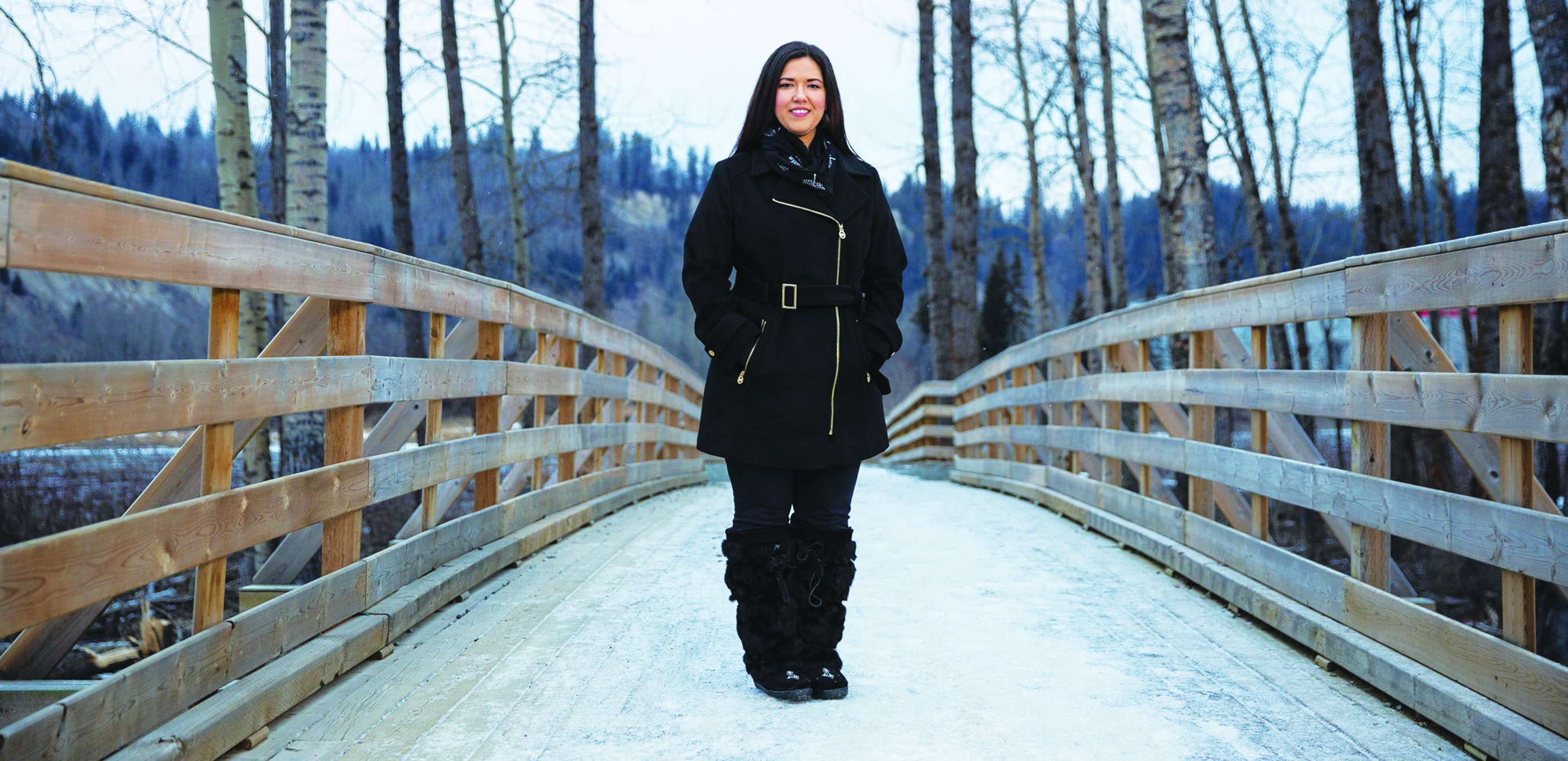Dr Terri Aldred: A new voice and perspective on the Editorial Board
Dr Aldred tells us about her background, what motivates her, and what she’d like to accomplish on the BCMJ Editorial Board.

In fall 2022, the BC Medical Journal welcomed a new member to its Editorial Board: Dr Terri Aldred, a family physician who lives on Lheidli T'enneh traditional territory (Prince George). Dr Aldred joins six other Board members and editor Dr Caitlin Dunne to peer-review manuscripts for publication consideration in the journal, often a dozen manuscripts or more per month. Dr Aldred’s journey to her career in medicine and, ultimately, to her role on the Editorial Board has led her to develop unique learning approaches and viewpoints that will bring a fresh perspective.
Dr Aldred is Dakelh (Carrier) from the Tl'azt'en Nation and grew up rurally, until moving to Prince George at age 14. Her family experienced poverty—she describes her childhood self as a “head in the clouds” girl who loved singing, daydreaming, and imaginary play. Although she is now an avid reader, that wasn’t always the case. In school, she found it challenging to learn to read aloud phonetically and sound out words but discovered that she could make better progress learning to read independently, through graphic novels and comics. With the help of the pictures, she familiarized herself with the words, although she still has to look words up at times and play with them to know how they sound.
Dr Aldred’s academic path to medical school was somewhat unconventional. Always a good student, she had a passion for science and wanted to get a good job to break the poverty cycle she experienced while growing up. She was also keen to enter a career that would enable her to give back to her community. She earned a scholarship to the University of Northern British Columbia (UNBC), where she initially planned to pursue a medical trade like lab technology, but her focus shifted once she started university. “I moved around quite a bit for my undergrad,” she explains. “I did my first year at UNBC, which is where I decided to pursue a career in pharmacy, as opposed to a medical trade. I then spent the next 2 years at community colleges before being accepted into the pharmacy program at the University of Alberta.” Dr Aldred ultimately chose medicine over pharmacy when two of her teacher mentors learned of her career goals and encouraged her to become a doctor. Although Dr Aldred felt medicine might not be for her, her teachers convinced her and wrote reference letters for her, and she was accepted into medical school.
That’s when Dr Aldred’s independent approach to learning once again came into play. “I became aware of the concept of career succession in medicine,” she says. “Physicians breed physicians; if you don’t know the process, where do you start? I Googled everything . . . I didn’t own my own computer, though, and I almost missed my acceptance deadline!” Through the process of navigating medical school with no early mentorship to speak of, she learned that almost anybody can go into medicine. “Although, depending on your abilities, you may have to work harder,” she says. “You have to really want to do it, and you have to make sacrifices.”
Harking back to her experience learning vocabulary words in elementary school, Dr Aldred found some medical terminology challenging in university—particularly the Latin terms. “There were a couple of embarrassing moments where I would try to say something and it would come out wrong, but I worked through the embarrassment . . . you just have to shrug it off,” she says.
Those challenges are now long behind her. These days, Dr Aldred counts reading and writing as two of her favorite pastimes. “I definitely always take time for reading,” she says. “I’m a self-help junky, so I don’t read a lot of fiction these days. I’m currently reading Dr Gabor Maté’s new book, The Myth of Normal: Trauma, Illness and Healing in a Toxic Culture, and will be writing a review for publication in an upcoming issue of the BCMJ.”
When it comes to medical writing and research, Dr Aldred is passionate about studies that incorporate lived experience and storytelling—a natural fit with her Indigenous heritage. “Data are powerful tools to invoke policy change, and as part of that, we need to tell our stories,” she explains. “We need to do that in a way that inspires changes to systems and structures.” She feels a responsibility to encourage research like this as part of her role at the journal, saying, “Even though I wouldn’t say I’m a researcher, or that this [role with the BCMJ] would be the direction I’d have seen myself choosing in the past, it’s so important. Indigenous people wouldn’t necessarily see themselves in this research space, or in the realm of health care policy change, and I want to highlight and encourage that.”
Although Dr Aldred acknowledges that the work she’s doing now for Indigenous health is inspiring, it hasn’t always been so. Similar to how the health care system is traumatizing (and retraumatizing) for many Indigenous people, she found medical school had the same lasting impact, in ways she is still dealing with. “It impacted my health; my nervous system will always carry that effect,” she says. “I’ve spent a lot of time trying to heal. I wouldn’t change it, though. I went through periods of anger, and then I had a physician mentor who taught me that you can’t make something wrong and help it, or fix it, at the same time. I’ve worked hard on forgiveness, and part of the reason I’m here is to help people, to give back, and to provide the care that Indigenous people need and deserve.”
Dr Aldred would like to use her BCMJ Editorial Board platform to encourage authors to submit manuscripts on topics such as cultural safety and humility, critical race theory and analysis, and changes to the health care system based on recommendations from the In Plain Sight report by Mary Ellen Turpel-Lafond. “I’d like to see more articles highlighting Indigenous-specific cases,” she says. “And I’d love to see authors use the journal as a platform to raise awareness of the Indigenous health landscape in Canada, of what’s been done so far, and that we still have a long way to go.”
Read Dr Aldred’s first editorial in the January/February issue of the BCMJ [2023;65:5].
To learn more about Dr Aldred, read her BC Medical Journal Proust Questionnaire (2022;64:414), check out her DocTalks podcast episode, “Putting Indigenous cultural safety into practice,” and read her profile in Doctors Making a Difference.
hidden
 |
| This work is licensed under a Creative Commons Attribution-NonCommercial-NoDerivatives 4.0 International License. |
hidden
Ms Lyon is a staff member of the British Columbia Medical Journal.

